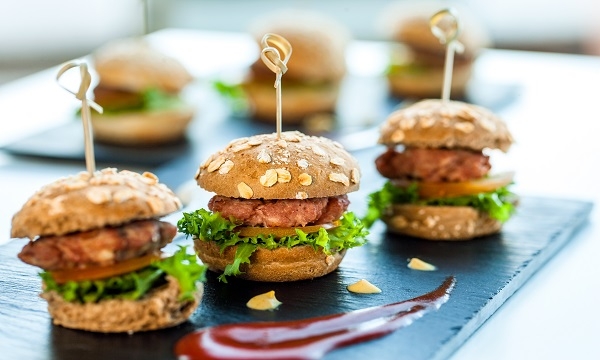
Survive or Die – the do's and dont's of re-branding hospitality businesses
Written by Philip Harrison, president and managing director of Harrison.
The world moves on quickly, particularly in the hospitality sector. For example, in 2015, the appetite for burgers was growing with restaurants clamouring for a bite of the Artisan bun, today it appears the burger bubble could soon burst as chains, such as Byron, scale back. As trends and consumer needs evolve, we recommend restaurants, bars, and hotels assess their brand and whether it meets market needs annually. Every two years, businesses should make changes, however small, to remain relevant, for example updating products and services.
Businesses operating in the hospitality sector need to be constantly alert to shifts in the market and respond quickly. The industry is extremely competitive – the hospitality sector contributes over £140bn to the UK Gross Domestic Product (GDP), while British households spend approximately £45.10 on restaurants and hotels per week. To survive, restaurants, bars, and hotels need strong branding that has the stamina, flexibility, and creative flair to stand out, remain relevant, and take advantage of growth in the hospitality sector – this is going to become more challenging as change accelerates.
Rebranding vs brand evolution
Rebranding is a marketing strategy usually used in response to long-term substantial changes in consumer habits to create a fresh identity in consumers’ minds and key business stakeholders, including investors, suppliers, and employees.
Brand evolution is usually about smaller changes through incremental innovations that reflect evolving market conditions, and changing customer needs – for example, updating your menu so it is line with food and drink trends.
Having recently rebranded Harrison to reflect its new direction and business strategy, we’ve provided our top tips on the dos and don’ts of rebranding and brand evolution:
- Do build a strong foundation – You should always remain true to what your business stands for, and update your branding around these core values. However, company codes should not be buzzwords, but principles you follow and reminders about why your business was born, what it offers, and what makes it stand out. Starbucks, for example, is a global phenomenon yet remains anchored to creating a warm culture where everyone is welcome. Your core values should be constant but flexible within certain brand guardrails, so your business can grow and adapt to market conditions whist staying true to its essence.
- Do look at customer aspirations – When refreshing your business, look at how your consumers see the world and how can you best meet these visions, creating something just for them. For example, more people are eating out as they want experiences and to socialise with friends and family, equally more people than ever are eating out for fuel – as a hospitality enterprise, your brand should reflect these aspirations, so you can continue attracting customers and remain relevant.
- Do consider all customer touchpoints – Branding should seep through all areas of a business that a consumer encounters. For example, offering a quality menu means nothing if your customers are sat on chairs that are too low, in a dark room with mismatched or disconnected interiors, being served by unfriendly staff. Examine the consumer’s journey – from the moment they open the door, walk to their table, and even visit the toilets, and ensure your branding carries through – from the design, the menu, customer service, and even recruitment and training.
- Do mature with your customers – Consumers don’t always remain loyal to one brand and can be unpredictable. Growing with your current customer base can add to your business’ competitive edge and help it to endure. A good example of this, is the changing demand of millennials, the generation born between 1981 and 1997. This demographic has experienced a more sophisticated range of food service concepts, with emphasis on authenticity, quality, healthier choices, and greater food credibility, and will likely continue to demand these values as they grow into a family market. If your business doesn’t meet their changing needs, you’re in danger of appearing unattractive to the next generation of young families.
- Don’t use unnecessary technology – While the digital revolution has evolved business’ relationships with consumers, customer service front of house remains critical. For some hospitality businesses the interaction between the server and guest is part of the whole experience, and for these brands, technology can have its limitations and could in fact alienate your customers.
- Don’t forget about your employees – The key to any company surviving is employing talented individuals, who can provide a fresh outlook and inject innovation. When rebranding you should also appeal to current and future employees, emphasising who you are, the direction the business is heading in and its future prospects.
- Don’t rebrand for the sake of it – When reviewing your brand, ask yourself whether it is still relevant and fits the market and consumer’s needs. Don’t follow your competition and copy what they are doing, this can confuse consumers and create a brand identity crisis.
Eating, drinking out, short break hotel visits are increasingly becoming part of everyday life, not just for special occasions, which is fuelling growth across the hospitality sector. To navigate changing consumer mindsets, your business’ branding needs to be evolve with them, while remaining loyal to its core values so it endures. By evaluating your brand every year and making incremental changes every two years, it signals to customers and stakeholders that your business is moving forward as well as communicating both visually and verbally the right information to stand out from its competitors.


























